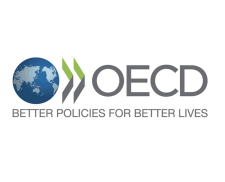
The European Commission (EC) and the OECD published the third edition of the joint EU-OECD flagship statistical report on the integration outcomes of migrants (also known as the Settling In Report: Indicators of Immigrant Integration).
The report provides an overview of migration and integration from 2010 until 2021. It is an important tool for practitioners in the field, identifying progress and challenges related to the integration of migrants and their children.
Since the publication of the 2018 EU-OECD Settling In Report, the overall situation of migrant integration has improved in many areas. For example, newcomers are better integrated into the labour market, and migrant children are better included in education. The participation of migrant children in pre-school has risen. Also, on average, newcomers attain a higher education level than before. If highly educated migrants were employed to the same extent as highly educated locals, there would be more than one million more highly educated people working in the EU.
Statistical evidence of integration outcomes can help to dispel misperceptions and tackle stereotypes: a further important contribution of the report. For example, the EU Special Eurobarometer has shown that 1 in 4 people believe that the education outcomes of migrants’ children have declined over the past decade. This report shows that the opposite is the case: in most countries, children born to migrants in the host country have significantly better education outcomes than before.
Despite the positive outlook on integration, challenges remain. Migrants still participate less in the labour market than the local population, and their living conditions are not improving. The COVID-19 crisis has had a negative impact on these conditions, as well as on migrant health. Often, migrants cannot afford proper healthcare. The health-related actions that the EC is taking as part of the Action Plan on Integration and Inclusion are now more relevant than ever.
By monitoring integration outcomes, this report represents an important stepping-stone towards better informed integration policies and helps inform public debate on the basis of facts and figures.
Details
- Authors
- European Commission, OECD
- Geographic area
- International
- Original source
- Posted by
